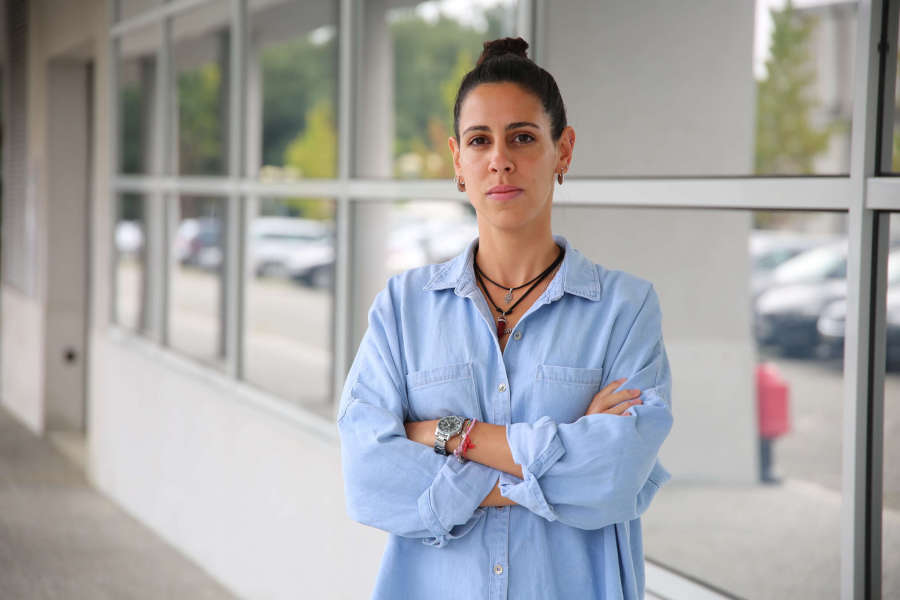AI-based Models for Lung Cancer Characterization: a Multimodal and Causal Approach
In this work, learning models that allow the integration of multimodal input information will be developed to create a comprehensive understanding of the multiple pathophysiological processes associated with lung cancer, and provide more robust and accurate assistance in clinician decisions. A causal analysis of the relationships between specific variables and the prediction outcome will be implemented, providing an essential contribution to the development of Artificial intelligence (AI)-based solutions for lung cancer. The clinical assessment takes into consideration several data sources to bring together all the important information for a reliable diagnosis. Following this line, holistic AI-based approaches based on multiple data sources introduce more complexity but are crucial for a correct analysis of the interconnected pathophysiological processes that occur in the human body system. Lung cancer has recently been studied as a more extensive clinicopathological phenomenon that involves alterations in multiple other lung structures. With a holistic analysis of these pathophysiological findings, and given the automatic pattern recognition ability of Deep Learning (DL) techniques, this work intends to develop a comprehensive fundamental research capable of providing relevant assistance in the characterization of lung cancer, by integrating multiple medical data modalities and exploring the different levels of feature abstraction that can be extracted given their distinct inherent properties. The integration of several data modalities from medical records (lab data, comorbidities, medications, demographics), to imaging raw data (x-ray, CT) and omics data (liquid biopsy) will lead to enriching patient stratification ability. The objective is to take advantage of more comprehensive models to improve diagnosis and treatment planning, specifically promoting more accurate and timely diagnosis and the most appropriate personalized therapies for lung cancer patients. Being considered as one of the major challenges in the application of machine learning, most models are still unable to generalize over data with different distribution as the one used for development. This lack of generalization is even more emphasized in clinical domain applications, where the amount of annotated data is often scarce and it is intractable to collect the necessary diversity of data to build truly robust models. Considering this, novel approaches for the extraction of the underlying variables responsible for the effects observed by the models should push the current limits in cancer care applications, especially given the high complexity and diversity found in medical data. Moreover, the extraction of meaningful information from low-level clinical data will also leverage the interpretation power of the obtained results, which is a crucial point in the medical domain. The goal of the LUCCA project is to spearhead a transition from mere data-fitting and fragmented models to the holistic understanding of cancer by developing integrated models that will provide information about the causal relationships of the pathological phenomena. The fundamental research will be based on the following objectives: development of multimodal algorithms that can identify patterns on multiple source data and combine them to predict the status of the main biomarkers; and integration of causal-based reasoning in model design to understand the underlying causal structure that connects the biological phenomena in lung cancer patients. Lung cancer characterization will be applied as a use case since this is an example of a complex and multi-data source problem, in which new solutions to help the diagnosis will generate a huge positive impact on the patient outcomes, and benefit from the expertise of this research team in this field. The proposed approach aims to provide reliable assistance to clinicians in this complex task. This project represents a disruptive approach for cancer study, by trying to create models for a more comprehensive analysis. Previous works have been based on single data modalities, often centred on the nodules (clusters of tumoral cells) and not taking into consideration other interactions that can be captured by holistic approaches. This proposal represents an innovation in both methodology and application sides, exploring techniques to improve the generalization of comprehensive learning algorithms, being a novel approach for cancer characterization. The integration of the multiple information and novel data from liquid biopsy in learning models will allow opening new perspectives about the elements involved in cancer development that were never studied.




